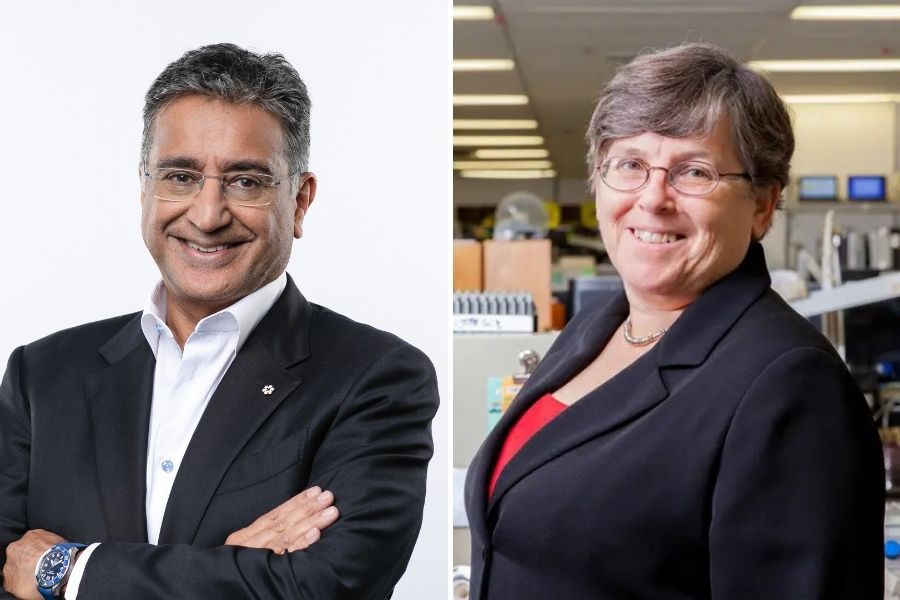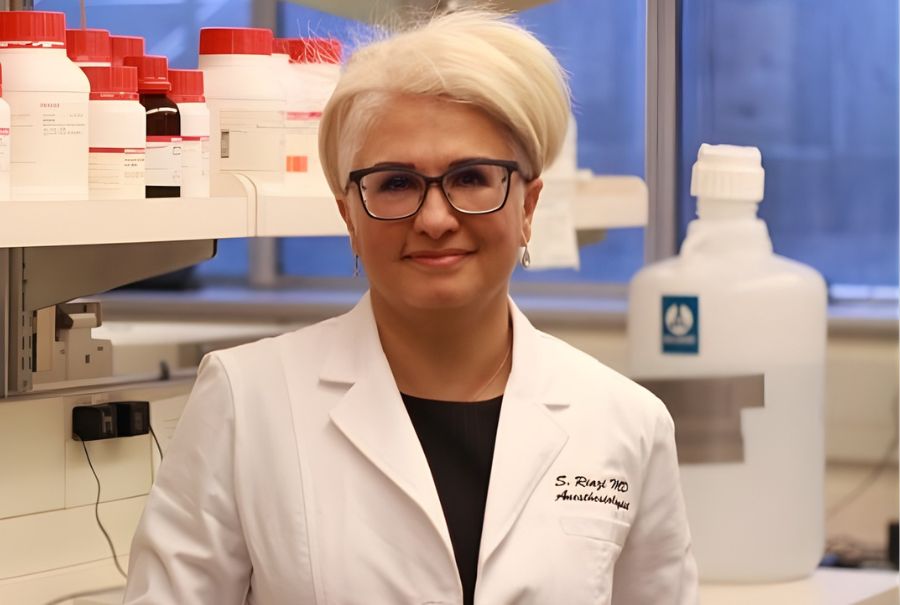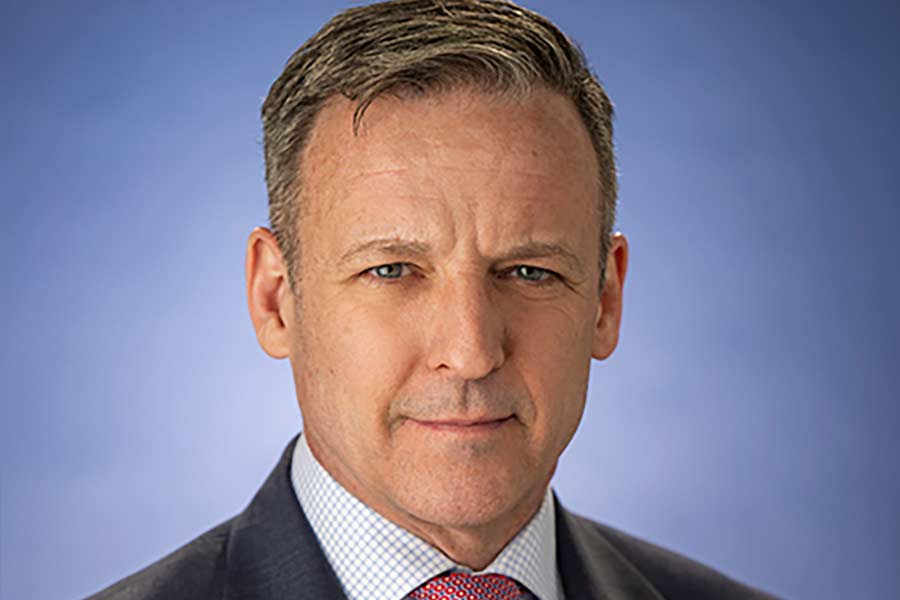“The history of Indigenous people is important to understand,” says Leonard Benoit, the newest member of the Indigenous Health Program at UHN. “Many have personally suffered or know of others who suffered, which must be taken into account when providing care.” (Photo: UHN)
Leonard Benoit wants to bridge the gap between Western medicine and Indigenous spiritual practices.
A member of the Qalipu Mi’Kmaq First Nation in Newfoundland and Labrador, Leonard is the newest addition to Indigenous Health Program at UHN. He will serve as the Regional Indigenous Cancer Patient Navigator for Toronto Central (Toronto Regional Cancer Program).
“The medical system was not designed for Indigenous folks,” says Leonard, a nurse for more than 20 years.
There have been efforts to make changes, however, they have been done without key stakeholders and consideration for Indigenous people, which has led to a dysfunctional healthcare system, Leonard says. He has witnessed the improper treatment of Indigenous people within that system.
Drawing on his professional background and Indigenous lived experience, Leonard hopes to bring about change in his new role.
Every patient needs to be looked at past their illness
Leonard comes to UHN from St. Michael’s Hospital, where he was a navigator for the past three-and-a-half years. His role is designed to ensure Indigenous people dealing with cancer are treated fairly, respectfully and with dignity within the healthcare system.
While his home base is at UHN, he will continue to see and help patients all over the city at any hospital.
“Every patient needs to be looked at past their illness,” says Leonard. “The history of Indigenous people is important to understand.
“Many have personally suffered or know of others who suffered, which must be taken into account when providing care.”
Some instances of suffering include the Residential and Day School system, forced sterilization, “Indian” hospitals, and missing and murdered women.
“They [Indigenous people] bring their invisible luggage,” says Leonard.
While advocating for Indigenous people to be seen for who they are with respect to their history, Leonard also lends his knowledge to the healthcare team on Indigenous care and spiritual ceremonies.
“We, as healthcare providers, want to do the right thing, but we don’t always know what that is,” he says.
The medical community has been very receptive to the merger of Western medicine and Indigenous spiritual practices, Leonard says of his experience as a navigator. There is a lack of awareness when it comes to Indigenous history and practices by many healthcare providers, but there’s an eagerness to learn in order to provide more inclusive care, he says.
“At times there is a sigh of relief when I walk in,” Leonard says.
Ashley Migwans, Program Coordinator, Indigenous Health & Population Health and Social Medicine, UHN, says Leonard is “an active member in the community and has spent many years building and strengthening those relationships.
“His passion and commitment to supporting and advocating for the community and Indigenous health equity, combined with his knowledge of navigating the healthcare system and the lifelong journey of continual learning from Elders, Knowledge Keepers, Healers and the community, make him an incredible addition to the Indigenous Health Program circle, and to UHN as a whole,” says Ashley.
There is a lack of trust in the healthcare system after decades of mistreatment of Indigenous communities. Leonard is working to provide emotional support to Indigenous patients in order to provide safe and trusted access to care.
With no word for cancer in Indigenous language, Leonard works to provide information and create an understanding about what the illness is in a way that connects with patients.
Moving forward in the new role
Leonard recalls supporting a patient who wanted to go into surgery wearing her moccasins. At first, the nurse did not agree with the request because it was against standard hospital protocol. The nurse didn’t understand the “why” behind the request. Once Leonard explained the importance of the moccasins, the two worked together and the request was allowed.
These decisions that may seem small to some, make all the difference for others.
Leonard is working to bridge this knowledge divide to provide understanding between care providers and Indigenous practices and beliefs.
Looking forward, Leonard hopes to see the Indigenous Health Team continue to grow. He also hopes there will be more access to Elders and spiritual ceremonies within hospitals, an increase in artwork and wellness spaces, and more done to raise awareness and positively influence Indigenous patient experiences at UHN.
“There is a lot of work to be done and we recognize we cannot do it alone,” he says.


